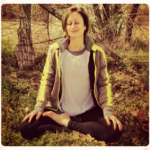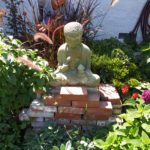Many of us have been brought up to perceive certain emotions as a weakness. We come to believe that certain emotions are defective or not allowed. In turn, we suppress our emotions, which are indicators of what our true feelings are on any given subject, and instead take on the opinions and beliefs of others in an attempt to fit in or be accepted.
In my own life it has taken profound courage to look at my deepest and most challenging feelings, and then attach these feelings to some of the most disturbing of circumstances in my life, past and present. Processing our feelings is terrifying sometimes. If we find we are experiencing what is societally a negative emotion, we can often be shamed and told there is something wrong with us. How many times, for example, do we hear that anger is not lady like. You must accept the unacceptable. You must conform. But what does suppression and conformity do to you internally?
For many years (and occasionally still), I suppressed my anger and turned in on myself because I was constantly told I was an angry person; that anger is bad, that I have no right to my anger. Instead of being encouraged to speak and express my anger I had to suppress it to be acceptable, even though the things I was angry about were harms done to me that were deeply unacceptable to me, yet permitted in our society. So, I expressed, instead, my anger through my self-destruction. It made me physically, mentally and emotionally ill, detached from myself and not trusting my instinct.
It takes profound courage to consider quietening and stilling our mind long enough to reflect upon the way that we actually feel. It takes courage to sit in the intensity of difficult, painful feelings. When we shut down our feelings we shut down our instinctual selves and begin to become defensive against everything that we truly are. We deny ourselves. We abandon ourselves. We learn that any kind of vulnerability is dangerous for us.
When we have learned to defend against any form of vulnerability, it becomes difficult and sometimes impossible to access the full range of our emotions. On top of that, being told that some emotions are good and commendable while others are bad or wrong, we continue our denial of our own truth. When we are unable to listen to ourselves and trust our instinct, we are unable to be responsive and nurturing to the deepest inner parts of ourselves.
But we have a choice. Again, making choice concerning our own truth takes profound courage. We can learn to listen to and hear ourselves again, by recognising what is truly you, and we can learn to respond to what we find with infinite love and self-consideration. Vulnerability takes practice. For me the sensation of becoming vulnerable was sometimes akin to going down the scariest roller coaster. Terrifying.
After years of practice and by trying things that made me the tiniest bit uncomfortable every day, and building to the bigger things, I realised that vulnerability is only an illusion. Once you become practiced at rejection, people disapproving, negative judgments, not fitting in, having your own opinions and belief systems, vulnerability, or rather the negative connotations surrounding vulnerability, disappear. Vulnerability stops becoming a fearful concept and turns into one of adventure and freedom.
As adults, to live well and to thrive we need to take conscious responsibility for our inner decision making and develop our ability to live from a position in which we are actively and consciously engaged in every aspect of our lives. Alternatively, we can avoid choice and live a life that’s not really ours. We can live someone else’s truth and by someone else’s rules.
Article by Nicola O’Hanlon








